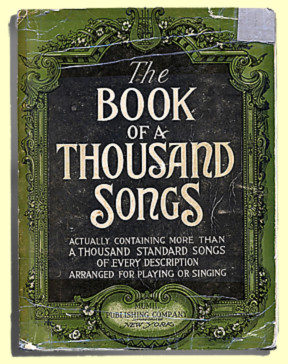free to a good home
Sep. 26th, 2012 01:33 pm.
Okay, not really. But here's the thing.
I get daily emails from the Mechanical Music Digest, which consist of the day's postings to a diverse group of hobbyists. Their delight is in player pianos, pianolas, band organs, violinolas, music boxes, and even automata. Every so often (and getting oftener) I read about another beloved member of the community who has passed on or gotten too old to keep doing the work, and the collection he or she (usually he) spent years putting together and keeping in order is looking for a home. More often, many homes, as different things go in different directions, possibly including the trash.
As they age out, they wonder where the next generation of people who appreciate this exacting craft will come from. Who will repair the machines? Who will keep the rolls rolling? Their kids, oftentimes, have bemused tolerance for their parents, but no intention of carrying on after them. The faces they see are getting older.
Now, I look around and see young people who love clockwork and gears and steel and brass and polished wood and leather cases, who are interested in the obscure and the outdated and the ingenious. Yes, steampunks and makers. Why wouldn't they want to get in on, and add to, the not-so-secret lore of the mechanical music enthusiasts? What would they bring to the table?
A recent posting at bOINGbOING on a player piano performance drew enthusiastic comments, but my attempts to post something like this message there have simply vanished into space. I used to subscribe to the steampunk community, but apparently allowed that to lapse, and rejoining just to post a glorified want ad seems sort of cheap. But hey, if anybody who reads this felt like reposting it or directing their eyes to my page, I'd love to get the word out.
Pneumatic tubes! Mainsprings! Foot pedals! Escapements! Antique mahogany finish! Burnished metal! Jewel bearings! Ebony and ivory keys! AND when you do it right, MUSIC comes out!
Here's the home page. There are links to years of postings from members, photos, movies, and sound files (midi and mp3), and you can participate by getting a free account and logging in.
.
Okay, not really. But here's the thing.
I get daily emails from the Mechanical Music Digest, which consist of the day's postings to a diverse group of hobbyists. Their delight is in player pianos, pianolas, band organs, violinolas, music boxes, and even automata. Every so often (and getting oftener) I read about another beloved member of the community who has passed on or gotten too old to keep doing the work, and the collection he or she (usually he) spent years putting together and keeping in order is looking for a home. More often, many homes, as different things go in different directions, possibly including the trash.
As they age out, they wonder where the next generation of people who appreciate this exacting craft will come from. Who will repair the machines? Who will keep the rolls rolling? Their kids, oftentimes, have bemused tolerance for their parents, but no intention of carrying on after them. The faces they see are getting older.
Now, I look around and see young people who love clockwork and gears and steel and brass and polished wood and leather cases, who are interested in the obscure and the outdated and the ingenious. Yes, steampunks and makers. Why wouldn't they want to get in on, and add to, the not-so-secret lore of the mechanical music enthusiasts? What would they bring to the table?
A recent posting at bOINGbOING on a player piano performance drew enthusiastic comments, but my attempts to post something like this message there have simply vanished into space. I used to subscribe to the steampunk community, but apparently allowed that to lapse, and rejoining just to post a glorified want ad seems sort of cheap. But hey, if anybody who reads this felt like reposting it or directing their eyes to my page, I'd love to get the word out.
Pneumatic tubes! Mainsprings! Foot pedals! Escapements! Antique mahogany finish! Burnished metal! Jewel bearings! Ebony and ivory keys! AND when you do it right, MUSIC comes out!
Here's the home page. There are links to years of postings from members, photos, movies, and sound files (midi and mp3), and you can participate by getting a free account and logging in.
.



